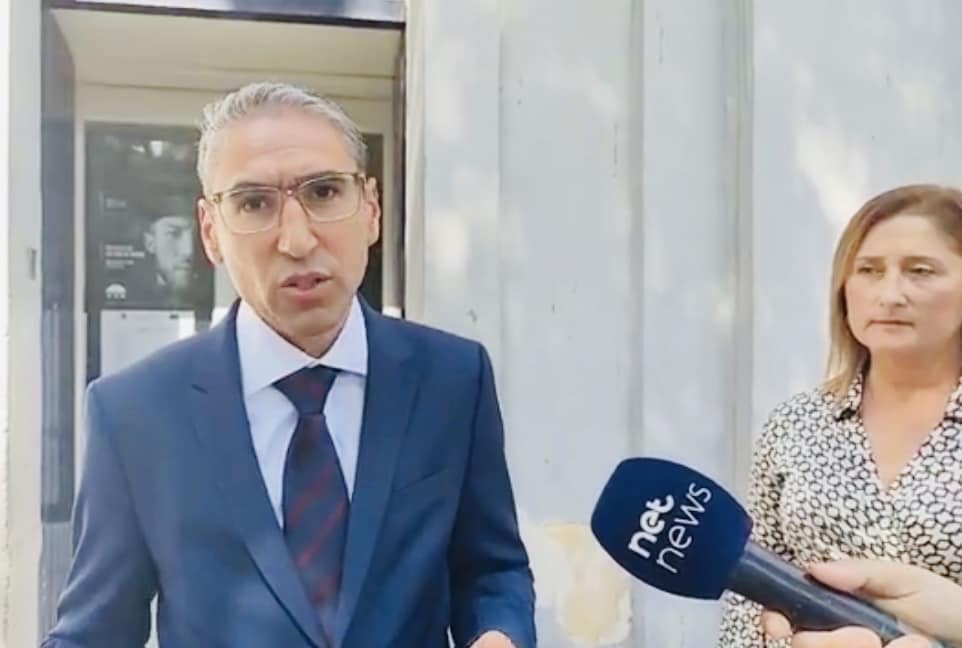
Someone at police headquarters appears keen to persuade Repubblika’s Robert Aquilina they are far more effective at law enforcement than he is in the habit of suggesting. Today he was called in for questioning and cautioned that everything he said could and would be used against him in a court of law.
The funny thing – if funny is the appropriate adjective – he was only told he was being questioned in connection with a press conference he gave last week at the entrance of the headquarters of the public broadcaster. It’s weird that anyone might expect an explanation to the police after doing something like that.
If you’re called to the police station and told you’ll be asked questions about a bank robbery you would at least understand why the police are asking. Bank robberies are in the remit of the police. They are crimes, even if in your defence you might say you had nothing to do with one. Was Robert Aquilina expected to say he had nothing to do with a press conference? Where’s the crime in that?
He wasn’t told what he was supposed to have done wrong, and he wasn’t told who told the police something wrong had happened. He was dragged out of his day to go to the police station like a common criminal.
Common is the operative word. Because the bigger problem this country has is not civil society activists giving speeches outside government buildings. The bigger problem is officials working inside government buildings committing well-documented crimes of corruption and bribery while the police let them be.
It escapes nobody’s attention that the man running PBS, Mark Sammut, was named just this week in a Times of Malta investigation for putting pressure on Transport Malta employees to help – to use the euphemism they go by – people who would otherwise fail their driving licence test.
Mark Sammut told Times of Malta earlier today he didn’t complain to the police about Robert Aquilina’s press conference. If that’s true, someone else may have kick started this act of state harassment of a civil society activist. It doesn’t matter. The fact remains that if Mark Sammut was not delighted by the harassment of someone who dared criticise him, he should have, as public broadcaster in chief, defended Robert Aquilina’s (and everybody’s) right to free expression and free association.
Robert Aquilina spends most of his days chasing public authorities and public officials and calling them out when they fail to do their work. He could very well use the time more productively, exercising his profession to earn an income for himself and his family. He doesn’t.
When Mark Sammut ignores his constitutional obligation to ensure impartiality and his role as a public broadcaster to give minority views a voice on the airwaves, he income is not impacted. Nor is Angelo Gafà’s, say, when the police chief fails to investigate and prosecute corrupt politicians. They fail to do their job, and yet they still get paid.
When Robert Aquilina does his job as a civil society activist, his regular income stops. He cannot bill for his services to the community. He does it, for free, out of a sense of service to the community. Love of country doesn’t put food on the table and yet there he is, every week, making his point.
For this is no longer a democracy, doing what Robert Aquilina does, is just what can land you an interrogation at the police station. We have ways of making you talk, they told him in a faux German accent. Clowns.
You’ll be relieved to learn that even after this blatant state-perpetrated threat Robert Aquilina assured the public he has no intention of stopping his hunt for justice and a half-way decent public broadcasting service. Someone’s got to do it, so Robert Aquilina does.